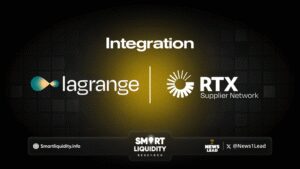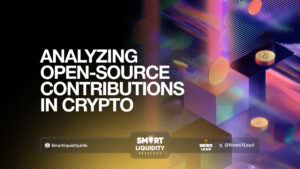Crypto AI Coins: Narrative-Driven Rally or Long-Term Utility?


The blend of AI and blockchain has become a hot topic in crypto, with AI coins soaring in price and attention since late 2023. Amid the hype and speculation, the key question remains: Are AI coins just a passing trend, or do they hold genuine long-term value through practical, real-world applications?
The Rise of AI Coins: A Perfect Storm of Hype
The intersection of AI and crypto created the perfect cocktail for speculation. OpenAI’s GPT-4 turbocharged public interest in AI, while crypto traders—always hungry for narratives—latched on. Coins like Fetch.ai (FET), Render (RNDR), Ocean Protocol (OCEAN), and Numerai (NMR) witnessed exponential price growth, boosted by:
- Retail FOMO
- Narrative-driven influencers
- AI integration announcements
- Speculation on the next “AI x blockchain” unicorn
But just like previous trend cycles (e.g., DeFi Summer, NFT mania), the critical question isn’t “What’s pumping?”—but “What’s building?”
Understanding What Makes an AI Coin Legitimate
Not all AI coins are created equal. Some are deeply integrated with AI infrastructure or decentralized data, while others simply slap “AI” on their whitepapers to ride the wave. Legitimate AI crypto projects tend to focus on:
- Data provisioning for AI models (e.g., Ocean Protocol)
- Decentralized GPU/compute power for training AI (e.g., Render Network)
- Decentralized AI marketplaces (e.g., SingularityNET)
- AI-powered crypto trading and prediction models (e.g., Numerai)
The key differentiator? Tangible use cases + scalable infrastructure.
Token Utility vs Token Hype
Many AI coins suffer from what plagues the broader crypto space: questionable token utility. A token might rally due to the hype, but what value does it actually unlock? Consider:
Project | Core AI Use Case | Token Utility | Narrative or Utility? |
Fetch.ai (FET) | Autonomous agent framework + ML integration | Payment for agent services & network usage | Mixed: Utility with strong hype |
Ocean Protocol | Data marketplace for AI models | Staking, buying, and selling datasets | Utility-focused |
Render (RNDR) | Decentralized GPU rendering network | Payments for compute power | Strong utility |
Numeraire (NMR) | AI-driven hedge fund with crowd-sourced models | Staking models to influence trading | Long-term utility |
PAAL AI | Chatbot token with unclear backend infrastructure | Token usage vague | Mostly narrative |
Projects with deep integration of their token into their actual ecosystem stand a better chance at surviving long term.
Market Psychology: Why AI Coins Pump
Traders are emotional creatures, and narratives sell. The psychology behind the AI coin rally includes:
- Technological curiosity: AI feels futuristic and inevitable.
- Low entry cost: Most AI coins started with low market caps.
- Influencer magnetism: Influencers love simple stories (e.g., “AI will replace Google, and this coin will power it!”).
- Memetic virality: Projects like Worldcoin (WLD) generated huge attention—even controversy—which only boosted engagement.
But while these factors ignite rallies, they don’t sustain ecosystems.
Long-Term Outlook: Which AI Projects Have Staying Power?
Long-term survival in crypto demands more than clever branding. It requires tech maturity, developer adoption, and real-world partnerships.
Here’s what separates the wheat from the chaff:
✅ Open-source development
✅ Transparent governance
✅ Partnerships with AI or cloud computing companies
✅ Utility that scales beyond crypto-native use cases
✅ Integration with Layer 2s or cross-chain operability
The future winners won’t just be “AI coins.” They’ll be AI infrastructure providers, data liquidity enablers, or compute decentralizers—regardless of narrative cycles.
What Should Investors & Builders Watch For?
For investors:
Look past the marketing. Evaluate if the project truly needs a token, and how that token generates value for the ecosystem—not just early buyers.
For builders:
The crypto-AI combo is ripe for disruption—but it needs clarity. Consider projects that solve actual bottlenecks in the AI lifecycle: data access, model training, bias mitigation, and privacy.
For regulators:
AI and crypto are both highly misunderstood. Their convergence creates new regulatory challenges around data privacy, model accountability, and tokenized governance.
Conclusion: Beyond the Narrative Lies the Infrastructure Race
The AI coin boom may feel like déjà vu from DeFi 2020 or NFTs 2021. But hidden among the hype are genuine innovations with the potential to reshape how AI is developed, trained, and deployed.
In the end, the projects that survive will be those that move from narrative-driven rallies to infrastructure-level utility—serving not just crypto users, but the global AI ecosystem.
Until then, trade wisely—and build for the long term.




